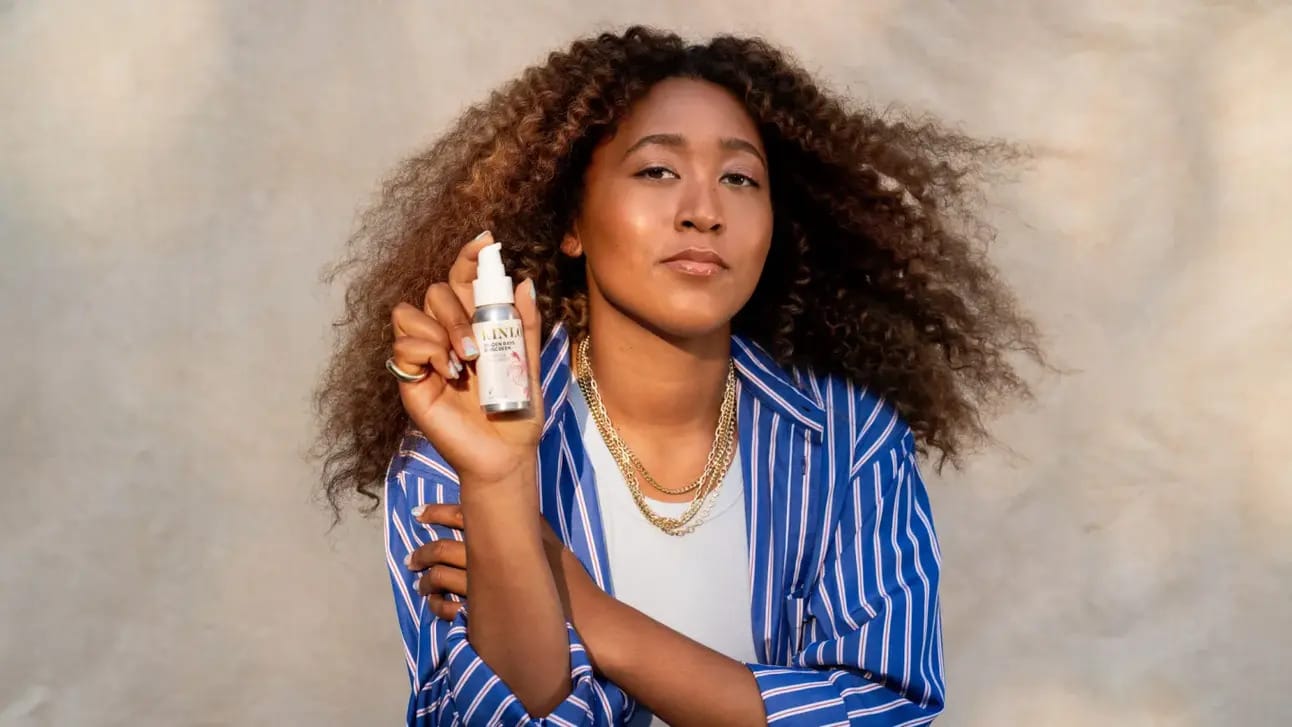THE DROP
Insights, launches, and strategy from inside the creator economy.

NOTES FROM THE EDITOR
Big brands had the spotlight, and dropped the ball. Now, creators are picking it up and doing it better. This week, we’re looking at how influencer-led brands are rewriting the rules of social business:
🍫 Feastables and Fair Trade – MrBeast and the Feastables team aren’t just making candy go viral, they’re using their massive platform to spotlight ethical sourcing.
🌞 Naomi Osaka’s Sunscreen Revolution – KINLÒ isn’t just skincare, it’s sun protection redefined.
👗 Matilda Djerf’s No-Corners-Cut Clothing – From unretouched photos to ethical factories, Djerf Avenue is setting the gold standard for values-driven fashion.
Influencer brands aren’t just cool, they’re correcting broken industries.
Let’s get into it.
☕ Feature Story
🍫 How MrBeast Is Redefining Ethics—and the Business World with It

At first glance, Feastables might look like another influencer product. A flashy, fan-backed chocolate bar from YouTube’s biggest star, Jimmy Donaldson, aka MrBeast. But underneath the viral campaigns and wild giveaways lies something deeper—something that might just be a turning point in how brands are built, and how creators are using their platforms.
This is a story about chocolate—but more importantly, it’s a story about power, ethics, and the future of creator-led business.
The Hidden Cost of Cocoa
Here’s what most chocolate brands don’t tell you: Over 1.8 million children (mostly in West Africa) are estimated to be working under exploitative and dangerous conditions just to meet the world’s cocoa demand. Physical abuse, forced labor, long hours, little pay.
It’s not a footnote. It’s half the global cocoa supply.
For decades, the industry looked the other way. Consumers were kept in the dark. Brands kept selling. Consumers kept buying.
Until, slowly, something started to change.
Feastables: A Chocolate Bar with a Mission
When MrBeast launched Feastables, he didn’t just want it to be delicious or viral. He wanted it to be different.
“We created Feastables, and we're going to use the incredible network of our fans to change the way business is done in cacao-growing regions around the world,” the website declares.
That wasn’t just lip service. Donaldson made a bold commitment: 100% of Feastables chocolate would be ethically sourced, and completely free of child labor.

In an industry where even legacy brands have struggled to meet that standard, Feastables made it a non-negotiable from day one. While most companies treat ethical sourcing as a future goal or optional initiative, Donaldson made it the foundation.
And it worked.
Why This Matters for the Creator Economy (TLDR)
What MrBeast is building isn’t just a chocolate company, it’s a blueprint.
In the past, ethics in business were often treated as a PR strategy or post-crisis repair job. Now, thanks to creators like Jimmy, ethical principles are being baked in from the beginning, and it’s resonating with a new generation of consumers who care as much about values as they do about flavor.
The lesson is clear: creators don’t just influence culture. They influence supply chains, labor conditions, and corporate standards. They’re no longer just marketers, they’re founders, policy setters, and movement starters.
MrBeast didn’t just build a better chocolate bar. He built a better way to do business.
🌞 Naomi Osaka’s Sunscreen Mission

Being one of the most dominant Women’s Singles tennis players in the world might sound like a full-time legacy, but Naomi Osaka had more in mind.
After realizing that her darker complexion didn’t make her immune to sun damage, Osaka discovered a hard truth: skincare, particularly sun protection, wasn’t built with people of color in mind. The sunscreen aisle was filled with products that left white casts, irritated sensitive skin, or ignored melanin-rich needs entirely.

So, she did what top creators and athletes are doing everywhere—she built something better.
KINLÒ, Osaka’s sun care brand, is made specifically for Black and Brown skin tones, with all-natural ingredients and zero compromise on protection. But it’s more than a skincare line, it’s a platform for education. Through KINLÒ, Naomi is sparking vital conversations around sun safety, representation, and the overlooked health risks facing communities of color.
In a world where most beauty brands still miss the mark, Naomi isn’t just filling a gap, she’s setting a new standard.
🌿 Built Different
Djerf Avenue: Vintage Vibes, Modern Standards

When Matilda Djerf launched Djerf Avenue in 2019 with just 300K Instagram followers, she wasn’t aiming to break the fashion industry—just to do it better. Fast forward to today, she’s built a global following of over 2.7 million and a clothing brand that’s become the gold standard for values-led style.
What sets Djerf Avenue apart? Everything.
✔️ No retouching – All product photos feature real models in real sizes (XXS–3XL), no Photoshop needed.
✔️ Ethical production – Every piece is crafted in certified factories in Portugal, Italy, and Sweden.
✔️ Sustainability at its core – From 100% recyclable trims and vegan fabrics to reselling imperfect items at a discount, waste isn’t part of the process.
This isn’t fast fashion. It’s thoughtfully made, community-driven, and built without cutting corners, because Matilda wouldn’t have it any other way.
Thank you for reading week 9 of The Drop!
Our team works very hard to bring these stories to life, and we are always looking for interesting stories to feature. Please reach out if you have a story that may entice us :)
— The Donavelli Team